Ubiquiti UniFi U6 Mesh
Ubiquiti Elite Distributor
in stock
?
155.42 €
155.42 €
Ubiquiti Elite Distributor
Detailed description
Elevate Your Mesh Networking Experience
Introducing the UniFi 6 Mesh Access Point, a state-of-the-art Wi-Fi 6 device designed to deliver unparalleled mesh networking capabilities for both indoor and outdoor applications. This advanced access point utilizes 4x4 MU-MIMO technology to provide best-in-class signal meshing, ensuring exceptional wireless coverage throughout your home or enterprise environment. The U6 Mesh is engineered to seamlessly integrate into existing network infrastructures, making it an ideal choice for expanding network reach and eliminating dead zones. Whether in a sprawling corporate campus or a multi-story home, the U6 Mesh enhances connectivity and ensures that every corner of the space enjoys reliable, high-speed internet access. Mesh networking is particularly beneficial in environments where a single router cannot provide sufficient coverage. By creating a network of interconnected nodes, the U6 Mesh ensures that signals are relayed effectively, reducing latency and improving overall network performance. This is especially useful in large office buildings, educational institutions, and residential complexes where consistent and robust Wi-Fi coverage is essential. The U6 Mesh’s ability to provide seamless connectivity across diverse environments makes it a versatile solution for a wide range of applications.
The U6 Mesh boasts an impressive aggregate throughput rate of up to 5.3 Gbps, harnessing the power of its dual-band technology. The 5 GHz band features 4x4 MU-MIMO and OFDMA, providing a radio rate of up to 4.8 Gbps, while the 2.4 GHz band utilizes 2x2 MIMO to achieve a radio rate of 573.5 Mbps. This high-capacity wireless uplink capability is further enhanced by the support for 160 MHz channels, enabling rapid data transfer and efficient network utilization. These features make the U6 Mesh an ideal solution for high-bandwidth applications, such as HD video streaming, online gaming, and large file transfers, where performance and speed are paramount. The implementation of MU-MIMO and OFDMA technologies allows the U6 Mesh to handle multiple simultaneous connections more efficiently. This is particularly beneficial in environments with high device density, such as office spaces, conference centers, and public venues. By dividing the channels into smaller sub-channels, OFDMA reduces latency and improves the overall network experience for all connected devices. The result is a smoother and more responsive network that can support the increasing demand for wireless connectivity in modern digital landscapes.
Plug-and-Play Simplicity

The U6 Mesh is designed for ease of use, featuring plug-and-play functionality that simplifies the setup process. Users can extend their wireless signal effortlessly, ensuring full coverage and high-quality Wi-Fi connectivity throughout their space. The device integrates seamlessly with the UniFi Network web application or mobile app, providing a smooth and efficient user experience. This centralized management platform allows users to monitor and control their network with ease, offering features such as real-time analytics, remote configuration, and firmware updates.
For IT administrators and network managers, the UniFi Network application provides a powerful tool for managing complex network environments. The ability to oversee multiple access points from a single interface streamlines network management and reduces the time and effort required to maintain optimal performance. This is particularly useful in large organizations with multiple locations, where centralized control is essential for ensuring consistent network quality and security. The plug-and-play nature of the U6 Mesh also makes it an ideal choice for residential users who seek to enhance their home network without the need for extensive technical knowledge or support.
Advanced Wireless Standards

The U6 Mesh operates on the latest 802.11a/b/g/n/ac/ax, Wi-Fi 6 standards, providing a comprehensive wireless antenna frequency range and gain of 2.4 - 2.4 GHz (3 dBi) and 5 - 5 GHz (5 dBi). With an antenna range of 140 m², it ensures powerful and expansive coverage across various networking environments. This advanced technology allows the U6 Mesh to deliver robust and reliable connectivity, even in densely populated areas with high interference levels. The device’s efficient power consumption, with a maximum usage of 11.4 W, strikes the perfect balance between performance and energy efficiency, contributing to a high-performance, eco-friendly network. The U6 Mesh can manage over 300 connected devices simultaneously, making it an ideal solution for high-density environments such as offices, schools, and public venues.
The adherence to the latest wireless standards ensures that the U6 Mesh is future-proof, capable of supporting new devices and applications as they emerge. This is particularly important in environments where technology is constantly evolving, such as tech firms, educational institutions, and smart homes. The device’s low power consumption also aligns with green building initiatives, reducing the overall environmental impact of network operations. By combining cutting-edge technology with energy efficiency, the U6 Mesh offers a sustainable solution for modern networking needs.
Adaptable Management & Flexible Connectivity
Managing the U6 Mesh is highly adaptable, with options to control the device through Ethernet, Wi-Fi, and Bluetooth. This flexibility in network management ensures that users can maintain optimal performance regardless of their specific requirements. The ability to manage the device through multiple connectivity options provides added convenience, allowing administrators to choose the most suitable method for their environment. This versatility is particularly beneficial in dynamic settings where network conditions and requirements can change rapidly.
The flexible management capabilities of the U6 Mesh make it an ideal solution for both professional and residential users. In enterprise environments, IT administrators can leverage the multiple management options to ensure that the network remains secure and efficient, even as it scales to accommodate growth. For residential users, the ability to manage the device through user-friendly interfaces ensures that they can maintain a high-quality network without the need for extensive technical support. The U6 Mesh’s adaptable management features provide a robust foundation for building a resilient and future-ready network infrastructure.
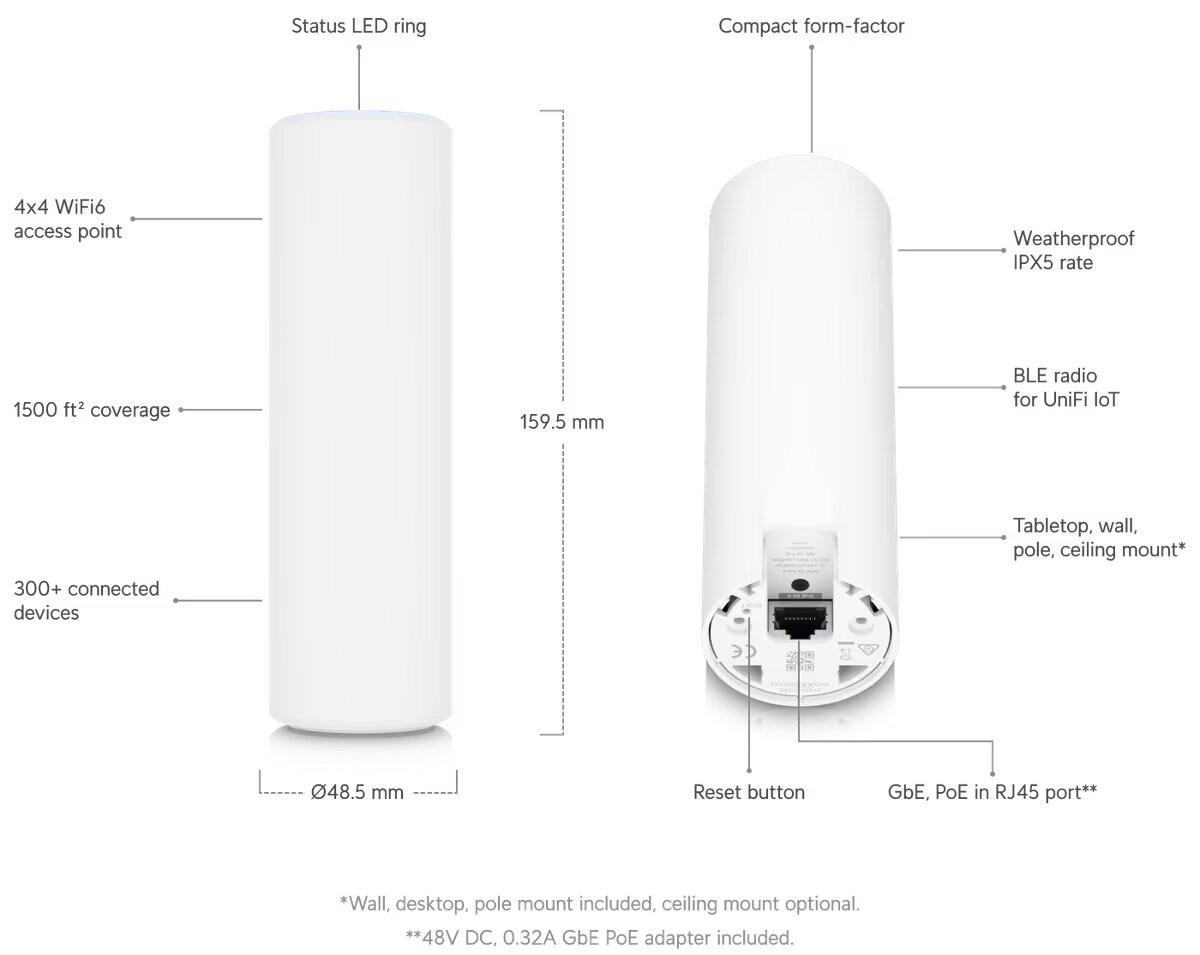
Placement Scheme
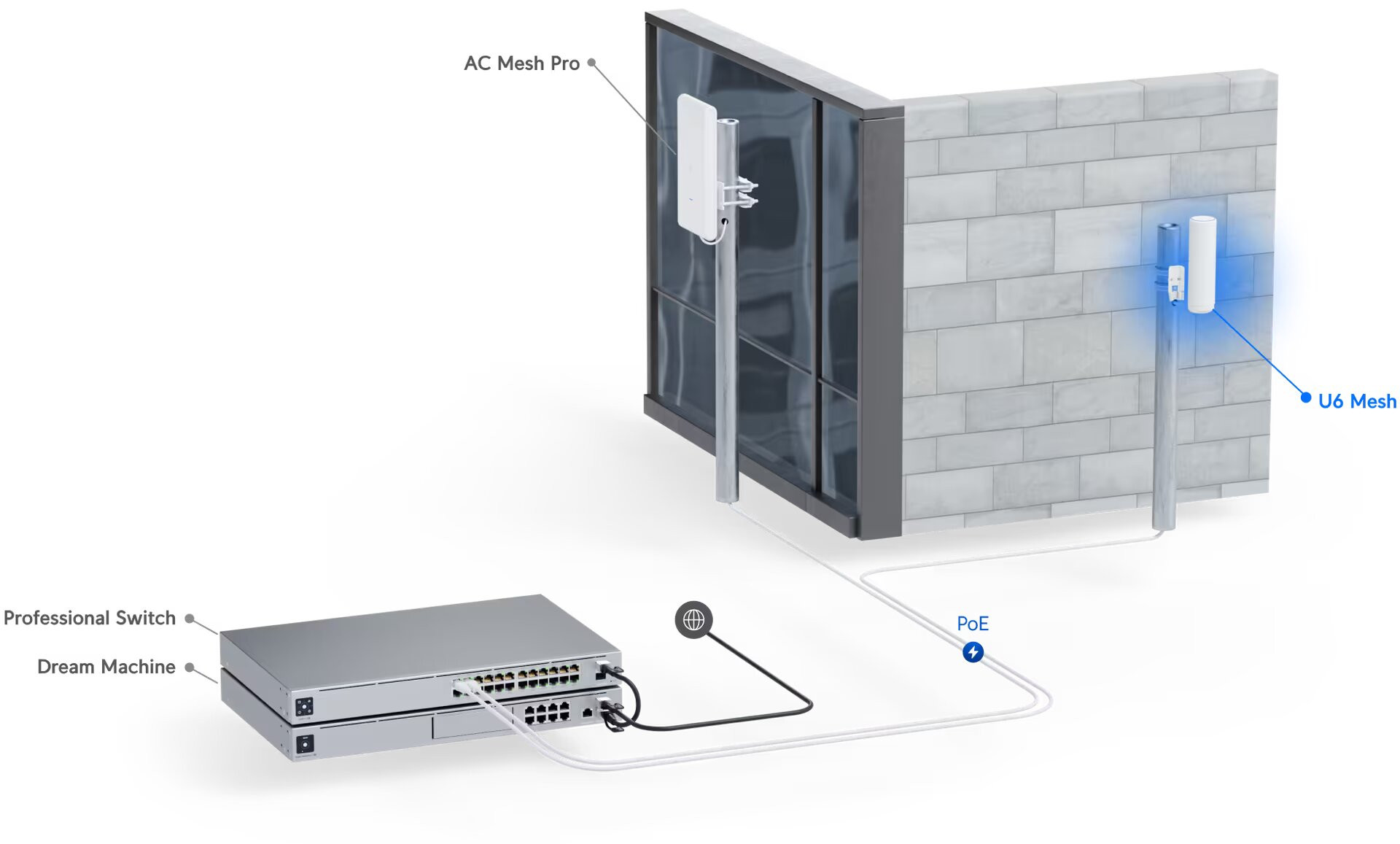
Compare with similar products
| Wireless Standard | ||||
| 802.11a/b/g/n/ac/ax, Wi-Fi 6 | 802.11a/b/g/n/ac/ax, Wi-Fi 6, Wi-Fi 6E | 802.11a/b/g/n/ac/ax, Wi-Fi 6 | 802.11a/b/g/n/ac/ax, Wi-Fi 6 | |
| MIMO | ||||
| 2.4GHz 2x2, 5GHz 4x4 | 2.4GHz 2x2, 5GHz 4x4, 6GHz 4x4 | 2.4GHz 2x2, 5GHz 4x4 | 2.4GHz 2x2, 5GHz 4x4 | |
| 2.4GHz Radio Rate | ||||
| 573 Mbps | 573 Mbps | 573 Mbps | 573 Mbps | |
| 5GHz Radio Rate | ||||
| 4.8 Gbps | 4.8 Gbps | 4.8 Gbps | 4.8 Gbps | |
| 6GHz Radio Rate | ||||
| 4.8 Gbps | ||||
| Wireless Antenna Frequency Range & Gain | ||||
| 2.4 - 2.4 (GHz) 3 (dBi), 5 - 5 (GHz) 5 (dBi) | 2.4 – 2.475 (GHz), 4 (dBi), 5.1 - 5.9 (GHz), 5.8 (dBi), 5.925 - 7.125 (GHz), 5.8 (dBi) | 2.4 - 2.475 (GHz) 5 (dBi), 5.1 - 5.9 (GHz) 6 (dBi) | 2.4 - 2.475 (GHz) 5 (dBi), 5.1 - 5.9 (GHz) 5.9 (dBi) | |
| Antenna range | ||||
| 140 m² | 115 m² | 115 m² | 115 m² | |
| Ethernet Ports | ||||
| 1 x 1 Gbps | 4 x 1 Gbps, 1 x 2.5 Gbps | 4 x 1 Gbps | ||
| Management | ||||
| Ethernet, Wi-Fi, Bluetooth | Ethernet, Bluetooth | Bluetooth | Ethernet, Bluetooth | |
| Max Power Consumption | ||||
| 11.4 W | 21 W | 11 W | 13.5 W | |
| Operating Temperature | ||||
| -30 °C to 60 °C | -30 °C to 60 °C | -10 °C to 50 °C | -30 °C to 60 °C | |
| Dimensions | ||||
| Ø48.5 x 159.5 mm | 160 x 157 x 34 mm | 170 x 113 x 33 mm | 140 x 96 x 32 mm | |
| Weight | ||||
| 0.400 kg | 0.884 kg | 0.340 kg | 0.460 kg | |
| Environment | ||||
| Indoor, outdoor | Indoor | Indoor | Indoor | |
| Wireless Standard | 802.11a/b/g/n/ac/ax, Wi-Fi 6 | 802.11a/b/g/n/ac/ax, Wi-Fi 6, Wi-Fi 6E | 802.11a/b/g/n/ac/ax, Wi-Fi 6 | 802.11a/b/g/n/ac/ax, Wi-Fi 6 |
| MIMO | 2.4GHz 2x2, 5GHz 4x4 | 2.4GHz 2x2, 5GHz 4x4, 6GHz 4x4 | 2.4GHz 2x2, 5GHz 4x4 | 2.4GHz 2x2, 5GHz 4x4 |
| 2.4GHz Radio Rate | 573 Mbps | 573 Mbps | 573 Mbps | 573 Mbps |
| 5GHz Radio Rate | 4.8 Gbps | 4.8 Gbps | 4.8 Gbps | 4.8 Gbps |
| 6GHz Radio Rate | 4.8 Gbps | |||
| Wireless Antenna Frequency Range & Gain | 2.4 - 2.4 (GHz) 3 (dBi), 5 - 5 (GHz) 5 (dBi) | 2.4 – 2.475 (GHz), 4 (dBi), 5.1 - 5.9 (GHz), 5.8 (dBi), 5.925 - 7.125 (GHz), 5.8 (dBi) | 2.4 - 2.475 (GHz) 5 (dBi), 5.1 - 5.9 (GHz) 6 (dBi) | 2.4 - 2.475 (GHz) 5 (dBi), 5.1 - 5.9 (GHz) 5.9 (dBi) |
| Antenna range | 140 m² | 115 m² | 115 m² | 115 m² |
| Ethernet Ports | 1 x 1 Gbps | 4 x 1 Gbps, 1 x 2.5 Gbps | 4 x 1 Gbps | |
| Management | Ethernet, Wi-Fi, Bluetooth | Ethernet, Bluetooth | Bluetooth | Ethernet, Bluetooth |
| Max Power Consumption | 11.4 W | 21 W | 11 W | 13.5 W |
| Operating Temperature | -30 °C to 60 °C | -30 °C to 60 °C | -10 °C to 50 °C | -30 °C to 60 °C |
| Dimensions | Ø48.5 x 159.5 mm | 160 x 157 x 34 mm | 170 x 113 x 33 mm | 140 x 96 x 32 mm |
| Weight | 0.400 kg | 0.884 kg | 0.340 kg | 0.460 kg |
| Environment | Indoor, outdoor | Indoor | Indoor | Indoor |
Technical Specs / Datasheet
Compatible products
Specifications
Wireless Network
Standards
802.11a/b/g/n/ac/ax, Wi-Fi 6
MIMO
2.4GHz 2x2, 5GHz 4x4
2.4GHz Radio Rate
573 Mbps
5GHz Radio Rate
4.8 Gbps
Antenna
Antenna Design
Omni
Wireless Antenna Frequency Range & Gain
2.4 - 2.4 (GHz) 3 (dBi), 5 - 5 (GHz) 5 (dBi)
Power
Power Method
802.3af PoE
Power Supply
External PoE Adapter
Supported Input Voltage
44 - 57 V DC
Max Power Consumption
11.4 W
Physical Parameters
Color
White
Material
Aluminium, Plastic
Ingress Protection Code
IPX5
Dimensions
Ø48.5 x 159.5 mm
Weight
0.4 kg
Operating Temperature
-30 °C to 60 °C
Environment
Indoor, Outdoor
Mounting Method
Package Contains
External Power Supply
Included
Useful materials
Often purchased together
Delivery
World wide delivery.
1-2 day express options.
Economy delivery via courier or post.
Orders dispatched within 24 hours on business days.
Payment
Fast and secure payments via card.
Bank transfers in EUR, USD or GBP.
Special offers for wholesale requests.
Warranty and Returns
30-day withdrawal returns.
Online RMA status for warranty, replacements and repairs.
Extended warranty available.






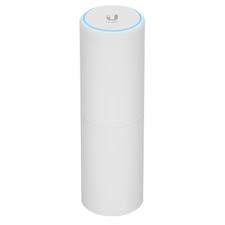
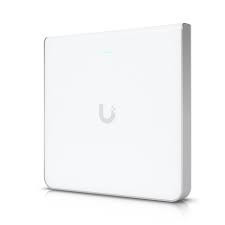
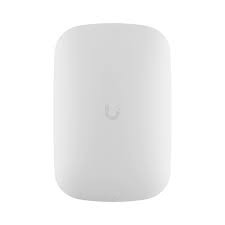
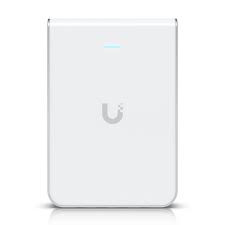
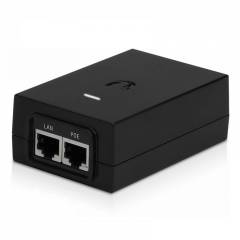
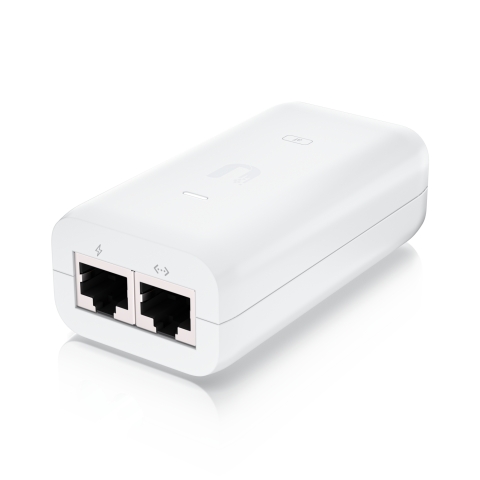
Reviews and ratings
Product rating